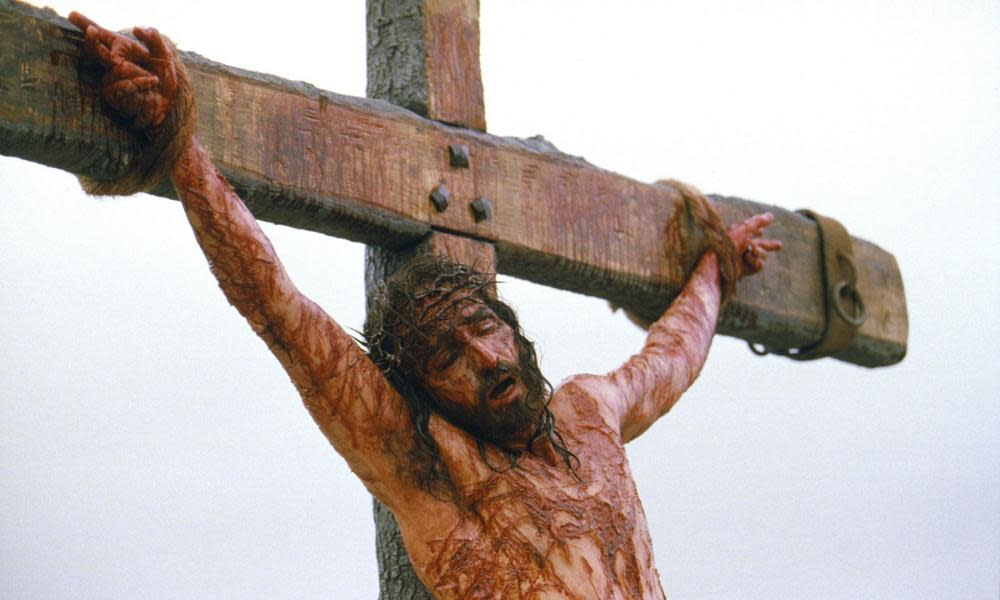The church’s strategy on protecting the child is designed to protect itself | Giles Fraser: Loose canon

It was towards the end of the bishop of Guildford’s statement that the main purpose of his press conference appeared to become clear. Rt Rev Andrew Watson said he had been “drawn into the Smyth circle” on elite Christian holiday camps, and beaten by him once. It was “violent, excruciating and shocking”. But – and here comes the key bit – “absolutely nothing that happened in the Smyth shed was the natural fruit of any Christian theology that I have come across”. That, of course, is what the evangelicals are most afraid of: people making a connection between their theology and John Smyth’s beating of the children in his care. Yet the connection is obvious – and at the very core of the evangelical story: that God the father violently punishes his son for the salvation of the human race. To reference Isaiah: “He was whipped so we could be healed.”
The whole culture of public school beatings was dominated by this narrative of violent atonement – old men with beards thrashing young boys, apparently for their moral and spiritual edification. Take this extraordinary piece of writing from Rev William Sewell, the founder and later the warden of Radley school. “To cane the senior prefect was rather like caning the king. ‘Risley,’ I said, ‘take off your gown.’ And without the slightest hesitation he took off his gown. ‘Would you rather cane me, sir, as I stand, or shall I kneel down?’ (I am giving the exact words, for I have never forgotten that moment.) ‘Kneel down, Risley,’ I said. I think that when I made that boy get up from his knees, and he put his arms round my neck, was the most exquisite moment of enjoyment I ever had.”
Yes, creepy and weird. And there is surely a repressed sexual aspect to the feelings that Sewell had for his senior prefect. But what makes it especially weird is that these feelings were formatted through the theology of substitutionary atonement. Beating the king (Christ), the kneeling penitent, the implication that some bond of love exists between the punishment giver and the punishment receiver, and the idea that all things are made new through violence – these are all major themes of the evangelical story about how human beings are saved.
Beatings aside, the other problem with the Smyth holiday camps was that they discouraged theological reflection. The camps were founded by Rev Eric Nash – or Bash as he was unfortunately known. He called himself the “commandant”, his deputy was the “adjutant”, other leaders were “officers”. Even among evangelicals, he was noted for his hostility to the critical reflection of theology. He “regarded theologians with suspicion and mistrust”, said Rev Michael Green. Moreover, as John King wrote in his book The Evangelicals, “controversy is eschewed by ‘Bash campers’; it is held to be noisy and undignified – and potentially damaging. As a result, many issues that ought to be faced are quietly avoided … any who question are liable to find themselves outside the pale. It does not give a place to the process of argument, consultation and independent thought.” From Alpha to archbishop, these camps produced the current leadership of the Church of England.
And the bishop of Guildford’s statement was straight from the Bash camp playbook, a textbook exercise in denial. Troubling theological questions have to be kept away from the public. It must be dealt with “in house”. This is precisely the experience that many survivors of clerical abuse have had when dealing with the church authorities.
“The problem of abuse in the church is not simply a case of some misguided men. It is a profound theological problem,” one survivor emailed the bishop of Guildford after his statement. “Joe” was raped by Rev Garth Moore when he was 16. Eventually, the church apologised and paid him compensation. But it never even began the process of proper self-criticism, he thinks. “It doesn’t give confidence in the bishops’ willingness to reflect on their own culture. It represents classic corporate refusal to take ownership of questions,” he said to me. For Joe, the problem is that “the central theology nearly always draws on images of male power and remote kingship”. And unless the church looks at this – yes, theologically and openly and critically – its child protection policy will always be more about protecting the church than protecting the child.

 Yahoo News
Yahoo News 
